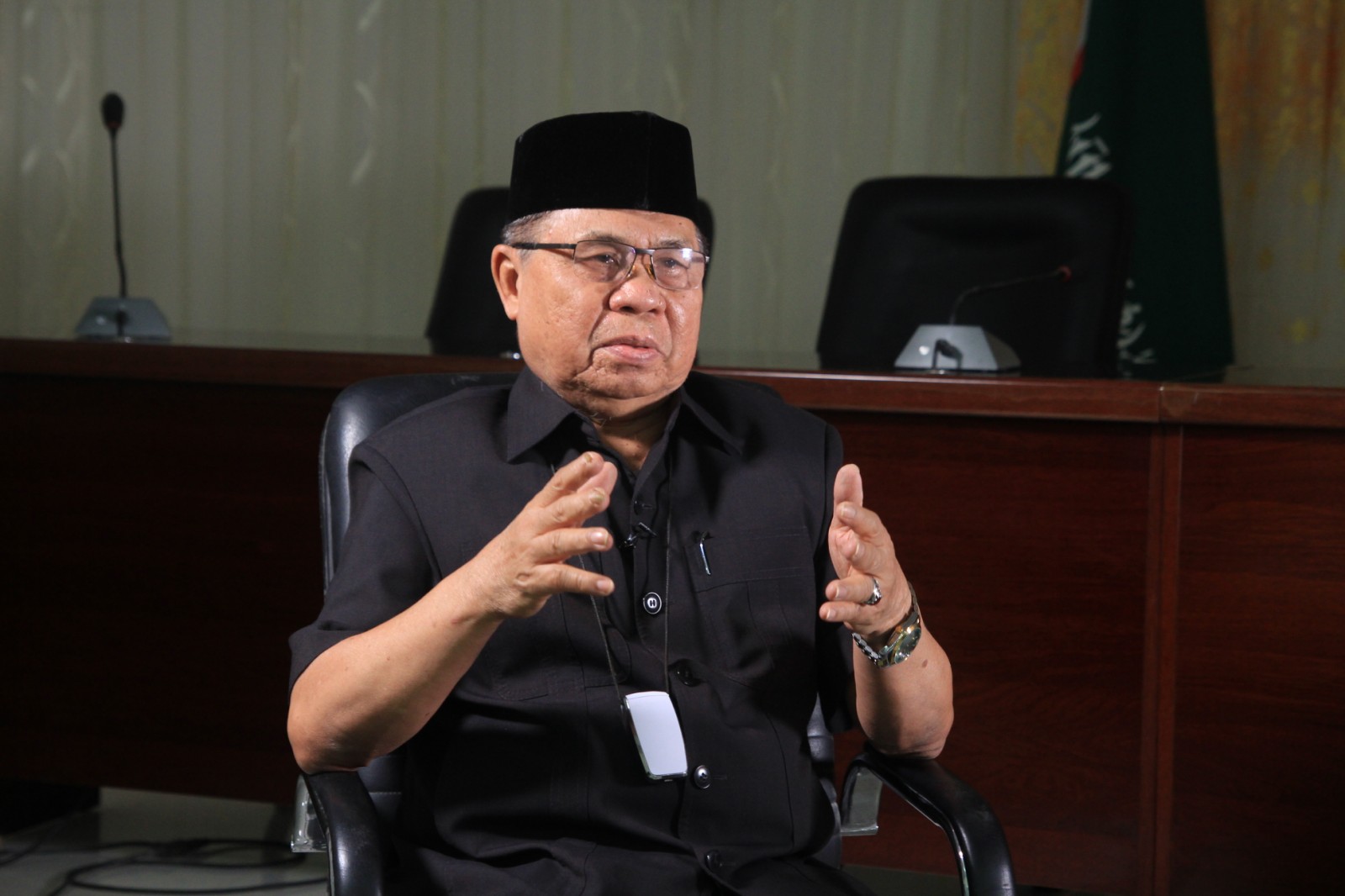
Bangsamoro Autonomous Region in Muslim Mindanao (BARMM) Chief Minister Ahod Balawag Ebrahim. (File Photo)
COTABATO CITY—Bangsamoro Autonomous Region in Muslim Mindanao (BARMM) continues to advance its economic performance and remain resilient despite the crisis posed by the Covid-19 pandemic, let alone the ‘bureaucratic challenges’ hurdled by the interim regional government amid the transition period.
The switch from ‘revolution to reformation’ of the now Moro Islamic Liberation Front (MILF) – led Bangsamoro regional government proved to be taxing and demanding the first two years of its transition as administrative concerns and processes were shifted to addressing public health emergency.
While the Bangsamoro Transition Authority (BTA) Parliament initially suspended its sessions during the advent of unprecedented Covid-19 last year, it was quick to adapt to alternative methods, utilizing technology to continue its legislative mandates. Moreover, several ministries, on the other hand, redirected their operation and focused on the delivery of essential services.
Economic Development
According to the Philippine Statistics Authority (PSA-BARMM), among regions in Mindanao, BARMM placed 2nd in terms of Gross Regional Domestic Product (GRDP) and Gross Regional Domestic Expenditure (GRDE) growth rate in 2019.
Similarly, BARMM ranked 7th among the country’s 17 regions after hitting a 5.9 percent growth rate in its GRDP.
This milestone was significantly driven by the region’s service sector with a 40.4 – percent contribution, followed by the agriculture, forestry, and fishing (AFF) sector with 34.5%, and the industry sector with 25.1 percent.
The PSA stated that BARMM was predominantly agriculture-based in 2018.
Agri-fishery sector
When the Covid-19 pandemic emerged last year, BARMM’s economic performance dropped by -1.9 percent—recording the lowest decline among all 17 regions in the country. Simply put, BARMM performed relatively well as it was able to mitigate the economic impact of the pandemic.
Despite the imposition of lockdown and community quarantine restrictions, BARMM’s agri-fishery sector continued to sustain supply and provide food on the table.
In the first quarter (Q1) of 2020, ‘palay’ production increased by 15.61 percent or 196,987 metric tons (MT) as compared to 170,387.50 MT in Q1 2019. In the same quarter this year, the region logged a 36.46 percent increase or 310,012 metric tons.
The provision of agricultural inputs, training for local farmers, and expansion of rice areas through model farms boosted the annual increase of rice production in BARMM.
While aquaculture’s total production increased by 4.00-percent in 2019, it was able to generate an increase of 1.69 percent to its total volume in the 3rd quarter of 2020.
This shows that for the past two years, the agriculture sector, under the supervision of the BARMM’s agriculture ministry, has performed well with the cooperation of the business sector and local government units.
Investment within two years
Looking at the business sector, the Regional Board of Investments (RBOI-BARMM) registered Php4.153 Billion worth of investments and recorded 2,724 employments last 2019. It generated Php2.3 Billion worth of investments, exceeding its target by 180-percent.
On Sept. 23, 2019, the RBOI approved Wao Development Corporation (WDC) registration to establish a Php306 Million worth of pineapple packing plant in Lanao del Sur, while on Sept. 27, 2019, it also approved a Php515 Million modern corn plantation investment in Maguindanao.
An investment worth Php950 million from Al Muzafar Agriventure Inc., also known as Amavi Sweet Banana, was registered by RBOI on April 15, 2021.
Recently, the Ministry of Trade, Investments, and Tourism (MTIT) approved the registration of Community Wireless and Power Corporation investment project worth Php14-Million intended for Lanao del Sur (1st phase) and Maguindanao.
Islamic Banking and Halal Industry
Another milestone in this transition period is the investment operations of ‘Islamic Banks and Financial Institutions’ in the BARMM under the Investment Priorities Plan (IPP) 2020, which was approved by President Rodrigo Duterte last November 2020.
Only in BARMM will Islamic Banking and Financial Institutions be able to avail of incentives. The same applies to the Halal Industry, which is included in the BARMM’s list of the IPP 2020 as prescribed by the RBOI.
In response to the global concerns on quality standards and halal compliance of various products, the BARMM through the Ministry of Science and Technology upgraded the Regional Standard and Halal Testing Laboratory, a first in the Bangsamoro region.
Overall, for roughly more than two years of service since the defunct Autonomous Region in Muslim Mindanao (ARMM), the BARMM generated a total of Php5.117 Billion worth of investments and 3,374 employments.
A total of 12,058 registered cooperatives across the region were recorded by the Cooperative and Social Enterprise Authority (CSEA) of the Office of Chief Minister (OCM) as of June 25, 2021.
Most of the listed types of registered cooperatives were advocacy, agrarian, agriculture, consumer, credit, dairy, education, federation, fisherman, marketing, multi-purpose, producer, service, traders, transport, union, and workers.
Covid-19 response and recovery
Since the onset of a nationwide public health emergency, constant coordination was being done by BARMM to its provincial offices to ensure that a ‘price freeze’ is implemented in the region.
The Local Price Coordinating Councils (LPCC) were reactivated to safeguard the consumers’ interest from illegal retailers.
The regional government also created the Bangsamoro Inter-Agency Task Force (BIATF) on Covid-19 and initiated a recovery plan dubbed “Promotion of Investment Sustainability Organization in BARMM” to address the economic realities and consequences of the pandemic.
In the midst of socio-economic fallout, BARMM’s recovery is primarily focused on improving health services, social welfare and development, and strengthening partnerships with local government units. (Bangsamoro Information Office)
![]()







